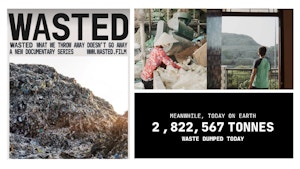#poverty 新闻

Unemployment is voters' top election concern - especially among young Indians who are struggling to find skilled, permanent jobs.

Kuala Selat village lies on the coast of Indragiri Hilir district on the Indonesian island of Sumatra. In the first half of the year, residents of the village arrange buckets and drums to collect rainwater to meet their daily needs. They will then stockpile water to last through the dry months from June to September, but a longer dry spell has led to an acute shortage of water.

As soaring temperatures drive thousands of Filipino schools to send pupils home, what is the cost to children's education?

Cambodia’s reliance on microloans, long touted as a way to reduce poverty, belies concerns over debt-fuelled deforestation.
#poverty 观点

Human health relies on healthy ecosystems, but these are under threat. Securing the right to live in a healthy environment is crucial for all.

New research by the International Rescue Committee (IRC) shows that disbursing International Development Association (IDA) funds to projects that positively affect people’s lives must overcome major barriers.

Air pollution is a 'silent killer', say former New Zealand PM and former WHO chief scientist.

AI and 3D printing can help create homes that are not only affordable and quickly built, but also potentially retrofitted to improve existing structures.
#poverty 视频

Launched as policymakers lock horns with petrochemicals lobbyists over a treaty to end plastic pollution, the documentary produced by Eco-Business asks why opportunities to solve humanity's waste crisis are being wasted. It will premiere in Singapore and screen on the sidelines of the upcoming COP28 climate summit.

A coalition of scientists and environmentalists found “widespread economic impacts” for communities in the Philippine province, heightening calls for accountability from the sunken tanker reportedly chartered by a San Miguel Corp subsidiary.

After 20 years without electricity, more than 50 households in Cebu's poorest district have been provided with solar energy, financed by carbon offsets.

Southeast Asia's largest energy consumer has been slow to transition to renewables, but recent policies point to greater expansion of the country's solar, tidal and geothermal energy production.
#poverty 播客

政策和金融
‘Never give in to fear’: Nobel peace prize nominee and Filipino Indigenous leader Vicky Tauli Corpuz
In celebration of Indigenous Peoples' month in the Philippines, the former United Nations special rapporteur tells the Eco-Business Podcast about her lifelong work to empower communities in Asia’s most dangerous country for environmental defenders.
#poverty 新闻发布稿

United Nations Development Programme
Rich countries attain record human development, but half of the poorest have gone backwards: UNDP

Asian Development Bank (ADB)
Climate change impacts severely impede SDGs: ADB-UN report

United Nations Economic and Social Commission for Asia and the Pacific
New UN report: Along with gender, where people live key factor in determining levels of poverty, inequality in APAC

World Economic Forum
Top organisations unlock new investments to support world’s most vulnerable

Economic and Social Commission for Asia and the Pacific (ESCAP)
UN forum underscores need for collaborative action to ensure crisis resilient urban futures













